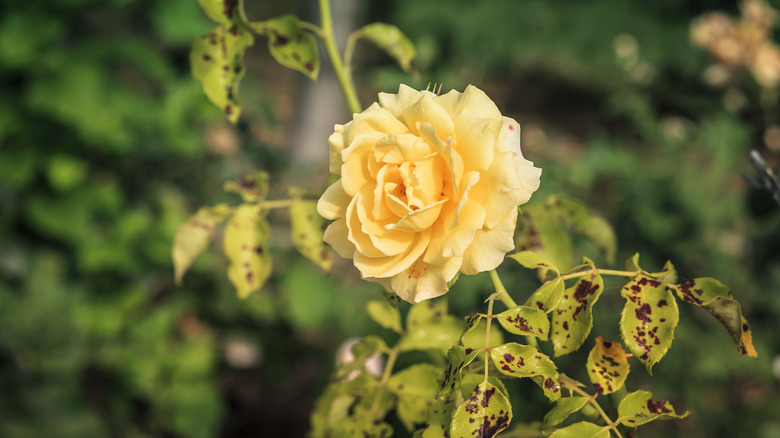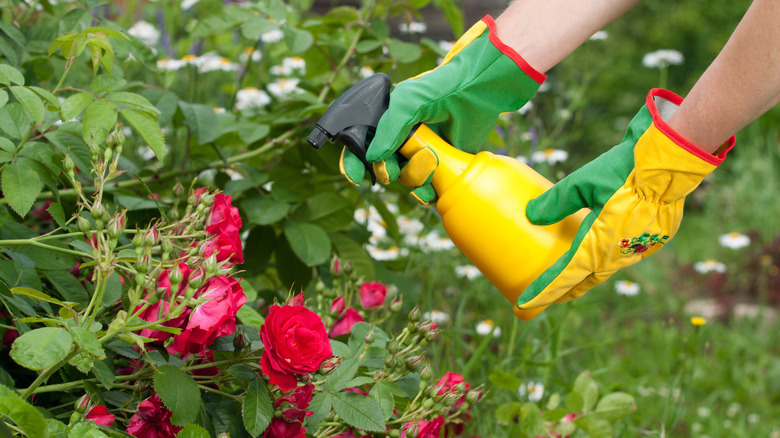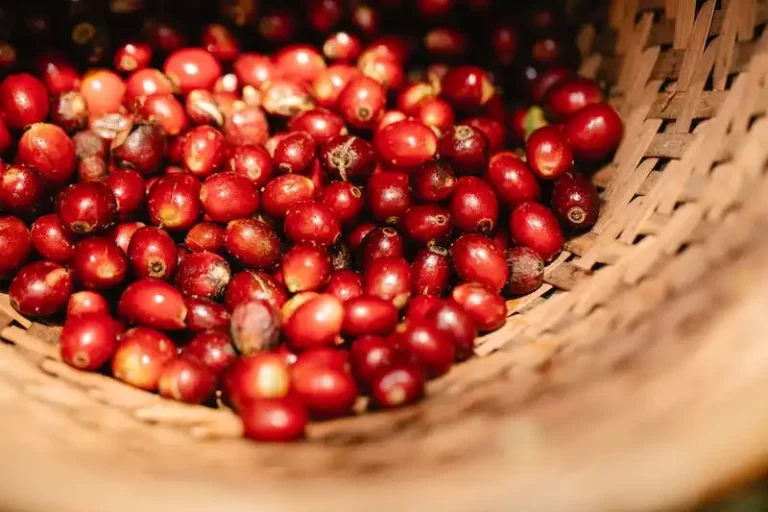If you grow roses, it’s basically inevitable that you’ll encounter black spot. This dreaded fungal disease was discovered in the U.S. in the 1830s and affects almost all rose varieties — although a few types are more resistant than others. If you pride yourself on an organic garden, you might be reluctant to reach for chemical or commercial fungicides. Thankfully, there’s a more eco-friendly option: cow’s milk. Spraying a mixture of water and milk on your plants may (note we say “may”) prevent or inhibit black spot growth.
Black spot is caused by the fungus Diplocarpon rosae. It thrives in wet weather, meaning rose gardeners will most likely notice the fungus in late spring and early fall. The disease gets its name from the distinctive dark patches that appear on leaves and stems. As the spots grow and spread, they become ringed with yellow. If left untreated, the plant loses all its leaves and stops blooming. The spores of Diplocarpon rosae are windborne, traveling quickly from plant to plant, and need at least seven hours of dampness to germinate. Winter temperatures do not kill them.
The milk-for-rose health debate

Similar to the viral hack of planting your rose bush with a potato, evidence for the efficacy of black spot milk treatment is … complicated. American gardening author and expert Jeff Gillman promotes the method. “Milk is a really good disease control for black spot and powdery mildew if you use it in the garden once every week or two after leaves come out,” he told Michigan Live. And that, it seems, is the key: use it as a preventative, not a cure. Science points to a protein in milk called lactoferrin that can potentially combat fungal infections in plants through gene manipulation, per a 2024 study in Transgenic Research. Milk is also high in nitrogen. Nitrogen, in turn, is one of the three core components of a complete plant fertilizer (the others being phosphorus and potassium). Well-fed plants are healthier and healthier plants are less susceptible to disease.
Conversely, Linda Chalker-Scott, a horticulture professor at Washington State University, calls the milk and roses partnership a myth. In her 2024 book The Informed Gardener, she notes that while the concoction may leave the plant less vulnerable to aphid attack or coat the leaves so the virus has less surface area to infect, it also encourages unsightly microorganism growth.
Make a black spot milk spray

If you’re all too familiar with what black spot on roses looks like and have exhausted conventional options, at the very least, a milk spray won’t hurt your plants. And given the conflicting expert opinions on the matter, it’s worth doing some experimenting of your own. While all recipes suggest mixing milk with water, the ratios vary. A 1:1 milk-to-water ratio is the most generous, as recommended by the Irish Examiner, while Gardening Australia suggests a far more diluted 1:10 milk-to-water ratio using organic milk.
Whichever way you mix it, apply your milk-based rose plant spray weekly from spring through fall to maximize its potential preventative benefits. Cover all your plants in the mixture: both sides of the leaves and the canes (stems). Leave the spray on your plants for 24 hours or so before washing them off with fresh water. Spray in the morning to give the leaves of your roses the best chance of drying within the seven hours black spot spores take to germinate.



